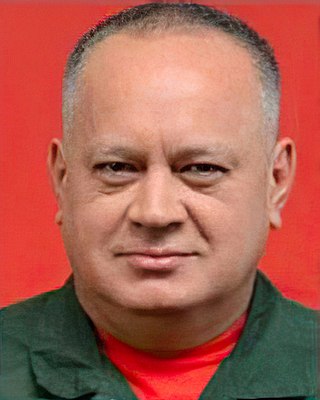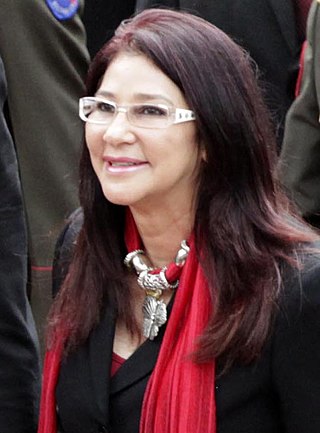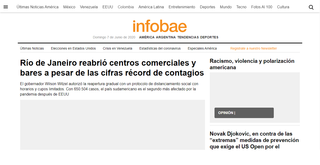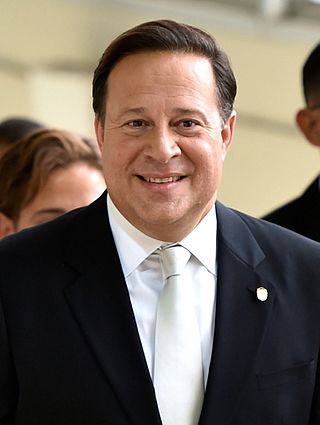Related Research Articles

Diosdado Cabello Rondón is a Venezuelan politician and current member of the National Assembly of Venezuela, where he previously served as Speaker. He is also an active member of the Venezuelan armed forces, with the rank of captain.

Jorge Jesús Rodríguez Gómez is a Venezuelan politician and psychiatrist serving as President of the National Assembly of Venezuela since 2021. He previously served as the vice president of Venezuela from 2007 to 2008 and as Mayor of the Libertador Bolivarian Municipality from 2009 to 2017. He is the brother of Delcy Rodríguez, the current vice president.

Cilia Adela Flores de Maduro is a Venezuelan lawyer and politician. She is married to the President of Venezuela Nicolás Maduro, making her the First Lady. Since 2015, she has also been a deputy in the National Assembly of Venezuela, of which she was president from 2006 to 2011, for her home state of Cojedes. In 2017, the Constituent National Assembly was founded, in which she is a member of the Presidential Commission.

Censorship in Venezuela refers to all actions which can be considered as suppression in speech in the country. More recently, Reporters Without Borders ranked Venezuela 159th out of 180 countries in its World Press Freedom Index 2023 and classified Venezuela's freedom of information in the "very difficult situation" level.

Elías José Jaua Milano is a Venezuelan politician and former university professor who serves as the Minister of Education of Venezuela. He served as the vice president of Venezuela from January 2010 to October 2012 and had been Minister of Foreign Affairs from January 2013 until September 2014.

Jorge Alberto Arreaza Montserrat is a Venezuelan politician who has held several important positions in the administration of President Hugo Chávez and his successor Nicolás Maduro. From August 2017 to August 2021, Arreaza served as Venezuela's Minister of Foreign Affairs. Arreaza has been sanctioned by Canada and the United States for his role in the violation of human rights in Venezuela.

Infobae is an international Argentinian online newspaper. It was launched in 2002 by businessman Daniel Hadad, with the original headquarters in Buenos Aires. The company expanded globally with local editions in New York City, Mexico City, Miami, Bogotá, São Paulo, Lima, and Madrid, all led by Marcos Stupenengo. The expansion increased Infobae's international audience, becoming one of the most read Spanish-language online newspapers worldwide.

Carmen Teresa Meléndez Rivas is a Venezuelan politician and Navy admiral. She was Minister of Interior and Justice from 25 October 2014 to 9 March 2015, and chief of staff in President Nicolás Maduro's cabinet for nearly six months from March to September 2015. After a governorship in Lara (2017–2020), she headed the Interior Ministry for the second time, from October 2020 to August 2021.

Vladímir Padrino López is a Venezuelan four-star general serving as the current Minister of Defense for the National Armed Forces of the Bolivarian Republic of Venezuela since 24 October 2014.

María Iris Varela Rangel is a Venezuelan leftist politician, activist, criminologist, member of the board of the United Socialist Party of Venezuela (PSUV) and Minister of Popular Power for the Prison Service.

A referendum was held in Venezuela on 16 July 2017. The referendum was called by the National Assembly in response to the constitutional crisis and President Nicolás Maduro's plans for a Constituent Assembly. The referendum was an act of civil disobedience in the context of the application of Articles 333 and 350 of the Venezuelan constitution, with the articles calling for Venezuelans to "disown any regime ... that violates democratic values", especially since the National Electoral Council and the Supreme Tribunal of Justice were not recognized in the referendum. The opposition Democratic Unity Roundtable (MUD) announced that there would be 2,030 areas for the popular consultation nationwide to serve more than 19 million voters.

Juan Gerardo Guaidó Márquez is a Venezuelan opposition politician. He belonged to the social-democratic party Popular Will, and was a federal deputy to the National Assembly representing the state of Vargas. On 23 January 2019, Guaidó and the National Assembly declared that he was acting president of Venezuela, starting the Venezuelan presidential crisis by challenging Nicolás Maduro's presidency. In December 2022, opposition parties voted to dismiss Guaidó as interim president, choosing Dinorah Figuera as a successor on 5 January 2023 and ending Guaidó's presidential claim.
The Local Committees for Supply and Production are food distribution committees promoted by the Venezuelan government in which the communities themselves supply and distribute the priority foods through a house-to-house delivery method. It was established in 2016 by President Nicolás Maduro in response to the shortages in Venezuela. The committees have been subject of complaints about corruption, political use, delays, poor food quality and price increases without prior warning. This service is a subsidiary of the Ministry of Popular Power for Food.

During the crisis in Venezuela, governments of the United States, the European Union, Canada, Mexico, Panama and Switzerland have applied sanctions against Venezuela, as well as against specific government entities and individuals associated with the administration of Nicolás Maduro. The sanctions came in response to repression during the 2014 and the 2017 Venezuelan protests, and activities both during the 2017 Constituent Assembly election and the 2018 presidential election. Analysts, including Diana Roy from the site "Council on foreign relations", have concluded that these sanctions have likely contributed to the existing decline of the Venezuelan economy. According to a 2023 state sponsored poll, 74% of Venezuelans do not support the sanctions.

The 2018 Panama–Venezuela diplomatic crisis was a diplomatic stand-off between Panama and Venezuela after the Panamanian government imposed sanctions on President Nicolás Maduro and several key officials of the Bolivarian government over alleged involvement with "money laundering, financing of terrorism and financing the proliferation of weapons of mass destruction" on 29 March 2018.
Hermann Eduardo Escarrá Malave is a Venezuelan lawyer, university professor and political analyst. He was a member of the National Constituent Assembly since 2017.
Jesús Rafael Suárez Chourio is a Venezuelan military officer who served as the General Commander of the National Bolivarian Armed Forces of Venezuela from 20 June 2017 until 8 July 2019.
Con El Mazo Dando is a Venezuelan television programme. It is transmitted every Wednesdays at 7pm on Venezolana de Televisión and TVes. It is hosted by Diosdado Cabello. Its sister broadcast Nos Vemos en la Radio is also broadcast on Radio Nacional de Venezuela.

Darío Ramón Vivas Velasco was a Venezuelan politician, member of the 2017 National Constituent Assembly and the Governor of the Capital District.
The following lists events in the year 2020 in Venezuela.
References
- ↑ SuNoticiero.com (2021-07-24). "Gobierno de Maduro denuncia que avión militar de Estados Unidos violó espacio aéreo venezolano". Tenemos Noticias (in Spanish). Retrieved 2021-07-30.
- ↑ "Jorge Elieser Márquez designado ministro del Despacho presidencial". CONATEL (in European Spanish). 2017-11-03. Retrieved 2021-07-30.
- ↑ "Venezuela: Jorge Elieser Márquez Monsalve es el nuevo director de Conatel". TeleSemana.com (in Spanish). 2017-08-09. Retrieved 2021-07-31.
- ↑ "Venezuela bloquea las emisiones de dos canales de televisión colombianos". www.notimerica.com. Europa Press. 2017-08-24. Retrieved 2021-07-31.
- ↑ Cooperante, El (2017-11-03). "Jorge Márquez, el nuevo ministro de la Presidencia que duró dos meses en Conatel". El Cooperante (in Spanish). Retrieved 2021-07-31.
- ↑ "¿Quién es Jorge Márquez Monsalve, director "Ad Hoc" de Directv?". La Prensa de Lara. Retrieved 2021-07-31.
- ↑ Korte, Gregory. "Trump administration unleashes more Venezuela sanctions following state election problems". USA TODAY. Retrieved 2021-07-31.
- ↑ "Departamento del Tesoro de los EEUU sanciona a otros diez funcionarios venezolanos". Efecto Cocuyo. 2017-11-09. Retrieved 2021-07-31.
- ↑ "IDENTIFÍCALO | El perfil CRIMINAL de Jorge Elieser Márquez Monsalve: El designado por la dictadura como "director Ad-Hoc" de DirecTV". AlbertoNews - Periodismo sin censura (in Spanish). 2020-05-22. Retrieved 2021-07-31.
- ↑ "¿Quién es Jorge Márquez Monsalve, director "AD HOC" de DirecTV? | Diario El Tiempo". www.diarioeltiempo.com.ve. Retrieved 2021-07-31.
- ↑ "COUNCIL IMPLEMENTING REGULATION (EU) 2023/2500 of 10 November 2023 implementing Regulation (EU) 2017/2063 concerning restrictive measures in view of the situation in Venezuela". EUR-Lex.